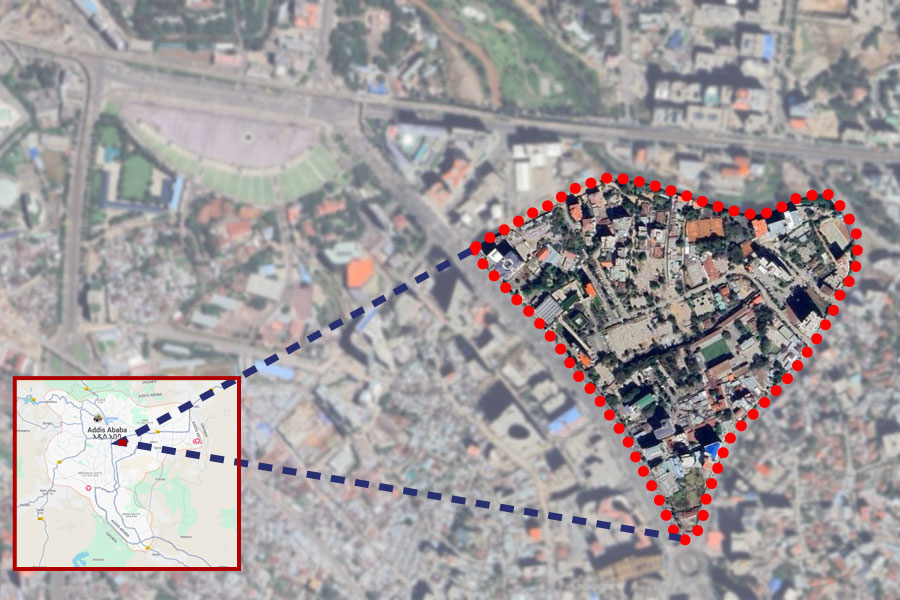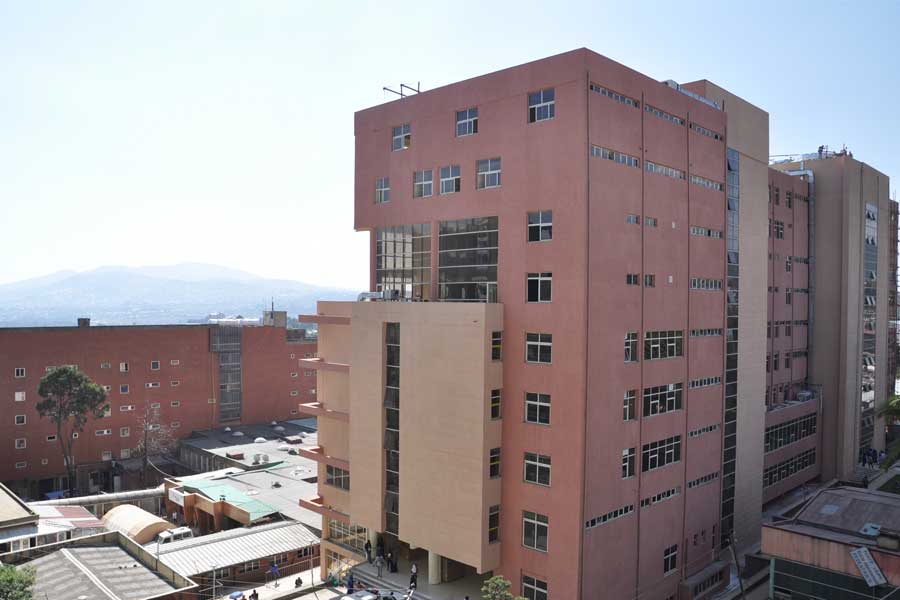
Radar | Jun 30,2024
Mar 11 , 2023
By BERSABEH GEBRE ( FORTUNE STAFF WRITER )
Ethiopian Pharmaceutical Supply Service (EPSS) is one step closer to expanding its cold room used for pharmaceutical storage and completing its seven-storey building, hoping to increase the storage capacity of vaccines, insulin, laboratory reagents and cancer medicines safely.
According to Solomon Nigussie, deputy head of EPSS, the basement of the incomplete building is functional as a cold warehouse with a capacity of 800 cubic metres of storage with plans to expand it to 2,000 cubic metres.
The current cold chain warehouse features three independent cold rooms that function at a temperature ranging from two to eight degrees Celsius at a 2,210 cubic metres capacity.
The deep-freeze room with -25 degree Celsius temperature has a 200 cubic metres storage capacity.
According to Solomon, the new building is expected to foster 700 of its 3,000 employees when it is complete.
Ministry of Health is evaluating contractors that have expressed interest to take part in the second phase of the construction, following a bid floated on October 25, 2022.
Unofficially, sources said that Santa Maria Construction is edging closer to bagging the contract, again.
The grade-one company has been in business since 1983, taking on projects for over two decades, including St. Peter, Eka Kotebe, and St. Paulos hospitals maternity ward. It is also responsible for the 1.2 billion Br vaccine laboratory construction project.
With Abel Hailemariam as a major shareholder, Santa Maria has plans of engaging in a joint venture.
Tilahun Abebe General Construction is among the companies that showed interest. However, the major shareholder, Tilahun Abebe, said they have not gotten an official response.
"I've given up," he said.
The 1.2 billion Br worth second phase is financed by the World Bank and is part of the 495 million dollar COVID-19 emergency response project that started in April 2020 continuing until the end of 2025.
The former Agency floated a bid to hire contractors for the first phase six years ago with Santa Maria Construction bagging the contract for 100 million Br. However, the structure of the building on Swaziland Street in front of St. Paulos Hospital has taken close to three years.
The manager of the consulting firm Virtual Consulting Plc, Biniyam Weldeabezgi, said the construction period was pushed by a year from the deadline due to unforeseen circumstances such as a delayed bid process and clearing of the plot.
The project was put on hold for over two years due to financial restrictions.
According to Fitehasilassie Negash, infrastructure development coordinator at the Ministry of Health, the current project is anticipated to be more expensive than the structural work due to the escalating prices of finishing materials. He said installing electrical frameworks, flooring and painting consumes a large capital.
"The prices have doubled," he said.
Established in 1947, the state-owned Ethiopian Pharmaceutical Supply Agency, now changed to Ethiopian Pharmaceutical Supply Service is the largest pharmaceutical buyer in the country. It imports drugs and medical equipment and distributes it to health institutions and hospitals across the country through its 19 branches.
EPSS imported 17 billion Br worth of medical equipment and drugs to supply more than 5,000 health institutions last year with an import bill accounting for 90pc of the imported drugs in the country. It has distributed 51 billion Br worth of medical and pharmaceutical supplies from both donation and procurement.
Abebe Berhanu, a lecturer at the school of pharmacy at Gonder University, said keeping drugs on the prescribed temperature rate is essential to maintain their responsiveness.
"It helps maintain the potency," he said.
He recommends the same level of attention be given during the distribution period.
Private importers attest to the challenges during the transportation and distribution of drugs such as vaccines, tetanus and insulin.
According to Henok Teka, the major shareholder of Droga Pharma Plc, the majority of distributors and importers do not approve the additional transportation costs and inconveniences for medical supplies that require extra care.
Droga Pharma Plc has been in business for the last seven years. It annually imports drugs worth six million dollars despite the difficulty to get foreign currency.
"The drugs could not withstand power fluctuation so the standby generators should be loaded while transporting," he said.
PUBLISHED ON
Mar 11,2023 [ VOL
23 , NO
1193]

Radar | Jun 30,2024

Radar | May 24,2025

Fortune News | Mar 02,2019

Fortune News | Feb 15,2020

Fortune News | Apr 13,2025

Fortune News | Nov 02,2019

Radar | Aug 30,2025

Radar | Oct 20,2024

Radar | Nov 20,2023

Fortune News | Sep 24,2022

Dec 22 , 2024 . By TIZITA SHEWAFERAW
Charged with transforming colossal state-owned enterprises into modern and competitiv...

Aug 18 , 2024 . By AKSAH ITALO
Although predictable Yonas Zerihun's job in the ride-hailing service is not immune to...

Jul 28 , 2024 . By TIZITA SHEWAFERAW
Unhabitual, perhaps too many, Samuel Gebreyohannes, 38, used to occasionally enjoy a couple of beers at breakfast. However, he recently swit...

Jul 13 , 2024 . By AKSAH ITALO
Investors who rely on tractors, trucks, and field vehicles for commuting, transporting commodities, and f...

Oct 4 , 2025
Eyob Tekalegn (PhD) had been in the Governor's chair for only weeks when, on Septembe...

Sep 27 , 2025
Four years into an experiment with “shock therapy” in education, the national moo...

Sep 20 , 2025
Getachew Reda's return to the national stage was always going to stir attention. Once...

Sep 13 , 2025
At its launch in Nairobi two years ago, the Africa Climate Summit was billed as the f...